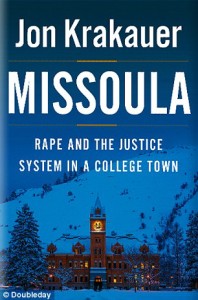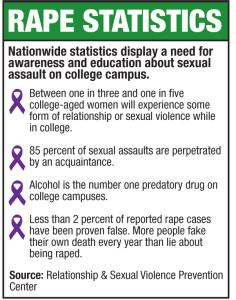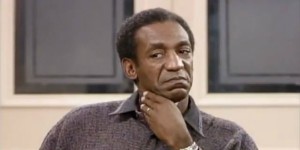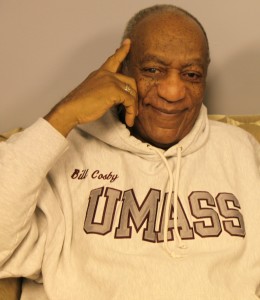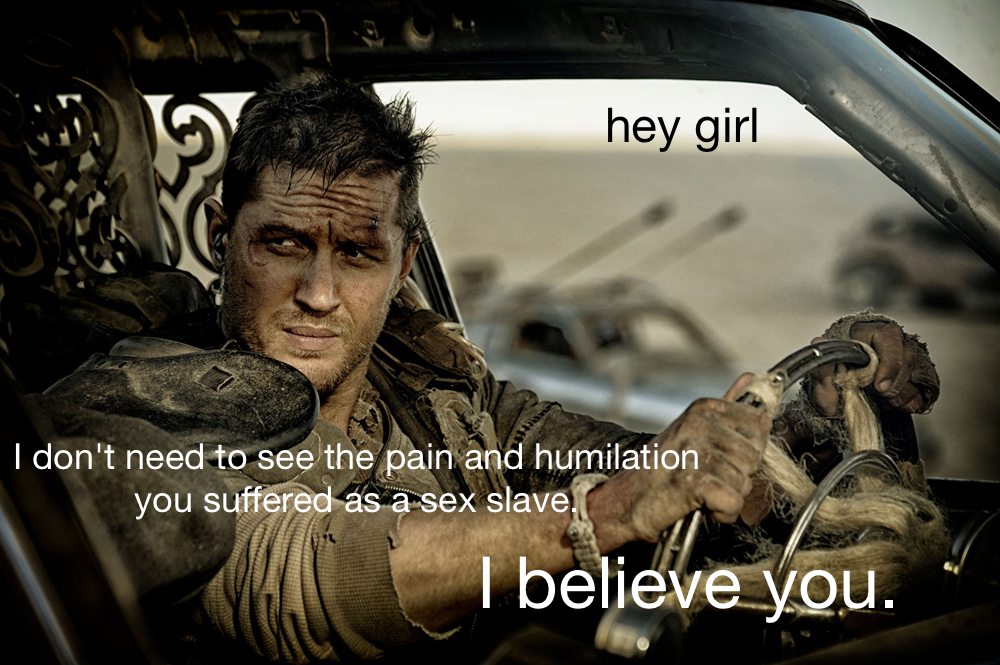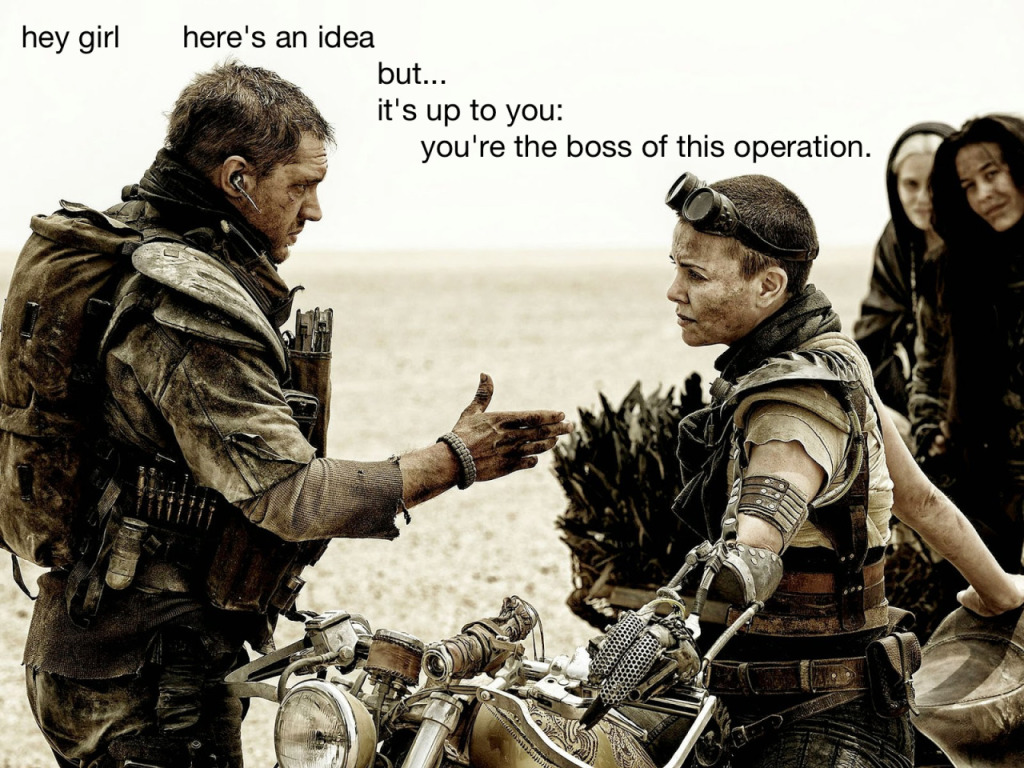Fourteen years ago, I attended freshman orientation at the University of Massachusetts in Amherst. Most of the time spent that weekend consisted of touring the campus, signing up for classes, learning about extracurricular activities, and choosing which housing area to live in.
However the most unforgettable part of orientation was when a group of 40 of us soon-to-be college students sat down and listened to a presentation from the Everywoman’s Center, which provided counseling and other services on campus for victims of abuse and sexual assault.
During the presentation, we were told that 1 in 4 of us would more than likely be raped by the time we graduated. The presenters even had us count off every fourth person in the room to provide a visual representation. Ten women were left with their hands raised. We looked around at each other, suspended in disbelief.
A couple of years later, I ended up at University Health Services asking for the morning after pill. Even then, I still didn’t believe what I was told at freshman orientation. I blamed myself for drinking too much and for my history of promiscuity. I was also so depressed and callous at that point in my life that what happened didn’t affect me much then. Sure, I was treated like I was worthless, but I already felt worthless.
At that time, I felt like I deserved what happened to me.
The drinking and drug culture that was so prominent at UMass was partially to blame. I heard several stories from friends who had been taken advantage of by someone they knew while they were drunk and/or high. What made things more foggy was that both parties were usually drunk and/or high, and due to this, the instances were mostly treated by both parties as regrettable hookups rather than rapes (Massachusetts law includes language about lack of consent due to intoxication, but the assailant must know that the condition rendered the victim incapable of consenting).
Rape was ridiculously common on campus. And for the most part, it was committed by acquaintances, friends, and even boyfriends.
These are facts confirmed by Jon Krakauer in his new book, Missoula. In Missoula, Krakauer explores rape and the justice system on a single college campus: The University of Montana in Missoula.
While Missoula has since been dubbed the “rape capital of America,” Krakauer argues that the occurrence of rape on the UM campus is sadly about the same as other college campuses across the U.S.
Here are 6 of the main takeaways from the book:
1. Rape is more common than most people realize.
In a study released in 2014, The Centers for Disease Control and Prevention found that 19.3% of American women have been raped in their lifetimes. That is approximately 1 in 5 women.
At least 80% of those who are assaulted don’t report the crime to authorities, which contributes to why rape seems less common than it is. Even rapes that are reported are rarely prosecuted, as we see in Missoula.
2. Most rape victims do not yell or fight.
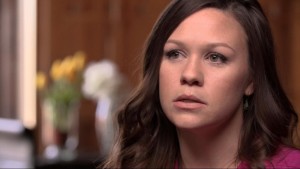
Allison Huguet, one of the rape victims whose story is depicted in ‘Missoula.’
To fully understand rape, one must understand the effects of trauma and how traumatic events can cause people to do things that don’t make sense to the rest of us.
This recent Washington Post article perfectly explains the psychological reasons why many rape victims don’t yell or fight. In essence, victims adopt an evolutionary reaction called “freezing,” which is comparable to the idea of “deer in the headlights.”
The majority of rape victims highlighted in Missoula did not scream or fight to get away from their assailants. Why is this? First, the majority of rapists depicted in Missoula are University of Montana football players, all of whom weighed at least 100 lbs. more than the women they assaulted. For the most part, the victims felt powerless against those who were assaulting them. Most of them were afraid that if they tried to fight or tell the assailant to stop that he would become more violent and even try to kill them.
Second, victims might not scream or try to escape because they are too incapacitated by alcohol and/or drugs.
3. The justice system fails rape victims while universities advocate for rape victims.
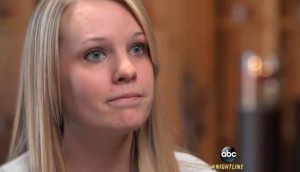
Kelsey Belnap, who was gang raped by four UM football players, did not see any justice as her own testimony was turned against her and the case was closed.
The thing that is most alarming about Missoula is how badly the justice system failed the rape victims whose stories are depicted in the book, all of whom were raped by University of Montana football players. Most of the failure can be attributed to the idol worship and economic impact associated with the UM football team, the Grizzlies. Eventually, the U.S. Department of Justice conducts an independent investigation and reports many troubling findings regarding the mishandling of rape cases in Missoula.
The findings showed that there was gross negligence and lack of up to date training for both local law enforcement and the Missoula County Attorney’s Office. This eventually leads to the establishment of Special Victim Units for both the Missoula Police Department and the Attorney’s Office. The fact that the U.S. Department of Justice even had to get involved is pretty damning. The findings resulting from their investigation are even more so.
It is sad that the University of Montana initially did more to advocate for rape victims than the police department or Missoula County Attorney’s Office. In essence, the university took more steps to ensure victims’ safety by expelling rapists for violating the university’s code of conduct (based on compelling evidence provided to the university).
4. Most rapists don’t believe they’re rapists.
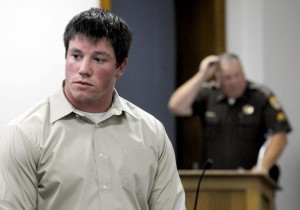
Beau Donaldson, a UM Grizzlies football player who was “like a brother” and trusted friend to Allison Huguet until he raped her.
In Missoula, Krakauer relays the disturbing results of two independently conducted studies. The findings were based on men’s answers to unbiased questions about their sexual experiences, none of which mentioned the words “rape” or “assault”.
One study was conducted on a random sampling of men who were students at the University of Massachusetts in Boston between 1991 and 1998. 6.4% were identified as rapists, with 4% of the overall sample being repeat offenders. The researchers found that “most of the student rapists interviewed were regarded by their peers as ‘nice guys’ who would never rape anyone, and regarded themselves the same way.”
In a 2009 study of Navy recruits, researchers found that 13%, or 144 recruits of the 1,149 recruits studied, turned out to be “undetected rapists.” And 71% of these 144 recruits were repeat offenders.
According to the researchers, “(the undetected rapists) share this common idea that a rapist is a guy in a ski mask, wielding a knife, who drags women into the bushes…. they harbor all the usual myths and misconceptions about rape and believe ‘nice guys’ like themselves don’t rape.”
5. Rape is the most common cause of PTSD in women.
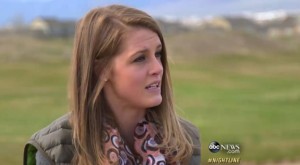
Hillary McLaughlin, who was also assaulted by Beau Donaldson, experienced PTSD following the assault.
Survivors of sexual assault exhibit similar behavior to those who have survived combat. Their symptoms may include flashbacks, insomnia, nightmares, hypervigilance, depression, isolation, suicidal thoughts, outbursts of anger, unrelenting anxiety, and an inability to shake the feeling that the world is spinning out of control. Rape is by far the most common cause of Post Traumatic Stress Disorder in women.
6. Rape victims who come forward have almost nothing to gain and everything to lose.
In Missoula, it is clear that women who come forward with rape allegations and press charges have almost nothing to gain and everything to lose. The majority of the cases discussed in the book end with the rapists getting off scot-free, while the accuser’s name and reputation is forever smeared. Even in a case where the rapist confessed and was sentenced to prison, the accuser’s life and reputation was destroyed.
Due to how common this is, women are often advised to not pursue criminal charges against their rapists. Because doing so will literally ruin their lives. Each victim featured in the book has her life, as she knew it, destroyed. And because of this, each of the victims (most of whom agreed to be named in the book), are my heroes. They have fought the fight that very few have dared to take on.
Review
All in all, I am rating Missoula by Jon Krakauer 4 out of 5 stars. It is a very good, well-researched, and important read. The only reason I give it 4 out of 5 stars is because I wouldn’t recommend the book to everyone. I had to stop reading the book twice because it was so depressing (which isn’t the fault of the author, but rather the way rape victims were treated by people in Missoula). Read it if you are interested in the subject, but please be aware that if you are a sexual assault survivor there are many triggering scenes in the book.
I am so grateful for the women who came forward to tell their stories in this book. They are my heroes. Their stories have and will inspire change in a broken and negligent justice system.
To learn more about this story in brief, feel free to view the following videos from a recent episode of ABC’s Nightline. Rape victims Allison Huguet, Kelsey Belnap, and Hillary McLaughlin, as well as author Jon Krakauer, were interviewed for the program.



